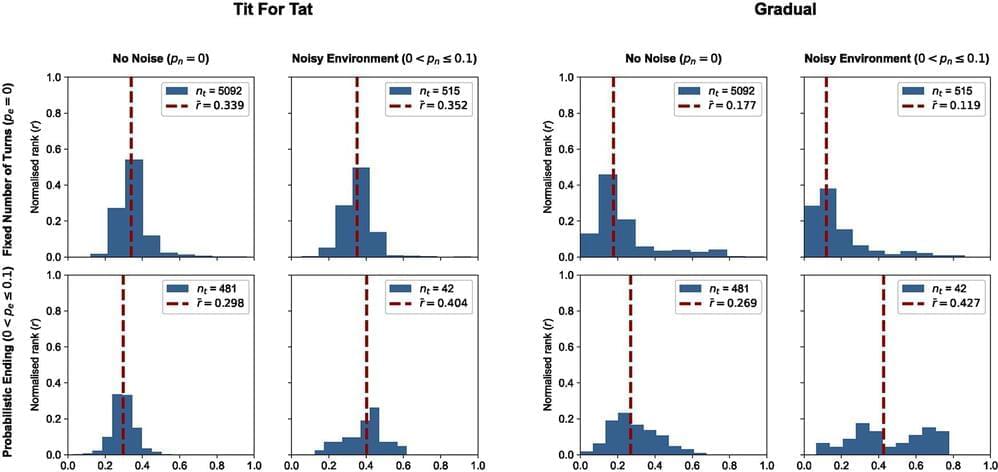In a new study published in PLOS Computational Biology, an international research team from the Max Planck Institute for Evolutionary Biology, Cardiff University, and Google has reexamined Robert Axelrod’s groundbreaking work.
By simulating more than 195 strategies in thousands of tournaments, the study revealed that success in the Iterated Prisoner’s Dilemma depends heavily on adaptation to diverse environments. Strategies that excelled in Axelrod’s controlled scenarios often failed when faced with a wider variety of opponents. Winning strategies are not only nice and reciprocal but also clever, slightly envious, and adaptable to the surrounding conditions.
The Prisoner’s Dilemma, a classic game in game theory, presents players with the choice to cooperate or defect. Mutual cooperation results in moderate rewards for both players, while unilateral defection yields a high reward for the defector and a significant loss for the cooperator. If both players defect, they receive less than they would through mutual cooperation. This tension between individual and collective benefit has made the game a model for decision-making in economics, politics, and biology.
